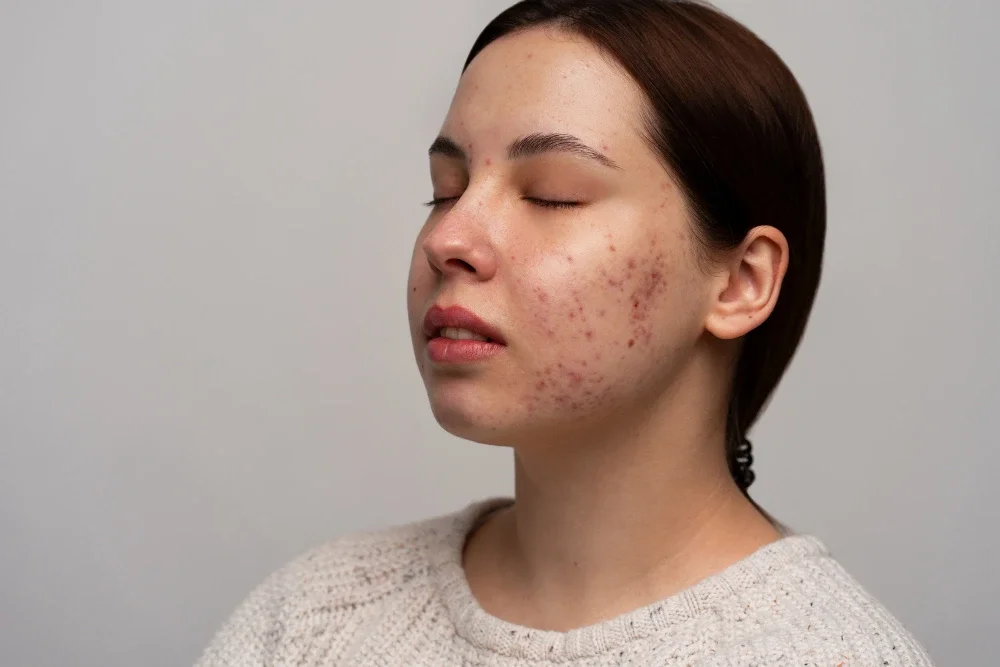Top Causes of Facial Itching and When You Should See a Doctor
Introduction
An Itchy face can be annoying, unpleasant, and even embarrassing—if accompanied by redness or dryness. Ranging from a minor cause such as dust to severe skin disorders, knowing the causes of facial itching is what will help you control it. This tutorial will take you through the most common causes of facial itching, treatments available, and warning signals that indicate it's time to consult a doctor.
Common Causes of Facial Itching
1. Allergic Reactions
Allergies are one of the most common causes of face itching. Your skin might be reacting to such items as:
Cosmetic products (face washes, creams, cosmetics)
Pollen, dust, or animal dander
Jewelry or clothing
The symptoms tend to involve face itching and redness, swelling, and occasionally hives. The reaction is called contact dermatitis.
2. Dry Skin (Xerosis)
When the skin is deprived of moisture, particularly during winter or through repeated washing, it gets flaky and itchy. Individuals with naturally dry or sensitive skin are more susceptible to this.
3. Eczema (Atopic Dermatitis)
Eczema is a chronic skin condition that results in dry, itchy, and inflamed skin. It tends to happen on the cheeks and around the eyes and mouth. Triggers include soaps, tension, and weather conditions.
4. Rosacea
Rosacea is an infection that leads to redness on face, tiny bumps, and itching—particularly on the nose, cheeks, and forehead. It's usually confused with acne but requires various treatment.
5. Seborrheic Dermatitis
It leads to flaky yellow or white scales on oily spots such as the nose, eyebrows, and scalp. It is frequent among individuals with oily skin and is mostly exacerbated by stress or weather.
6. Infections
Fungal infections such as ringworm can cause the face, resulting in round, itchy, red patches.
Bacterial infections can lead to inflammation and itching.
Viral infections such as shingles can result in painful, itchy rashes.
Facial Itching Treatments You Can Try
Instead of jumping to conclusions, the right diagnosis is important. Once the reason for facial itching is known, it's easy to treat.
1. Over-the-Counter Creams
Hydrocortisone creams or antihistamines alleviate minor allergic reactions or irritation. Calamine lotion also gives relief.
2. Moisturizers
Apply fragrance-free moisturizers to alleviate dryness and assist in rebuilding your skin barrier. For ingredients such as ceramides, hyaluronic acid, and glycerin.
3. Prescription Medications
For eczema, rosacea, or fungal infections, a dermatologist may prescribe:
Topical corticosteroids
Antifungal creams
Antibiotics (if there is an infection)
4. Lifestyle Changes
Don't use hot water on your face
Switch to gentle, hypoallergenic facial care products
Apply sunscreen every day
Drink plenty of water
When to Visit a Doctor
Facial itching is not often a problem. But it's time to visit a healthcare professional if:
Itching persists for more than a few days
Severe redness of the face or swelling occurs
You have pus, crusting, or bleeding
Over-the-counter treatments are not effective
You also have a fever with the rash
A physician can assess your skin, determine the underlying cause, and recommend the optimal facial itching treatments for lasting relief.
Conclusion: Don't Take Facial Itching Lightly
While minor itching now and then is to be expected, recurring facial irritation cannot be taken lightly. With proper care and vigilance, you can prevent complications and be comfortable with your skin once again.
If you are facing treatment of facial itching or persistent facial itching and redness, seek advice from a reliable medical expert. Jiet Medical College & Hospital, Jodhpur, one of the best hospitals in Jodhpur, offers specialized dermatology services to assist you in addressing facial skin problems safely and efficiently.




